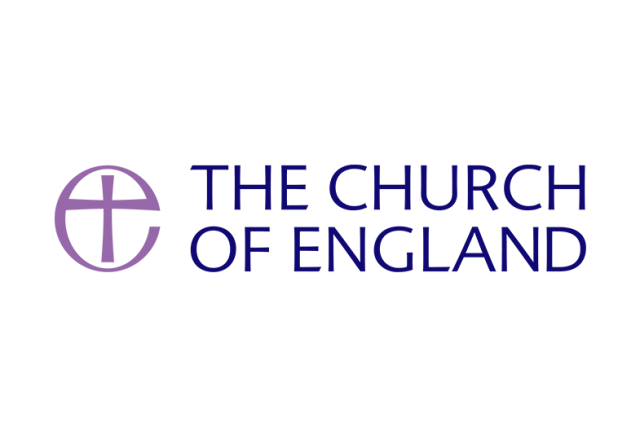
Theologians in Real Life
August 12, 2025
Within the Din of Despair, Do Birds Yet Sing?
September 30, 2025Christianity, Conservatism and the Search for Britain’s Soul
By Simon Cross
The Billionaire hedge fund manager Sir Paul Marshall occupies a unique, and increasingly consequential, position in British public life. The media proprietor, and philanthropist is not only a key figure at the heart of one of the leading edge parts of the Church of England (HTB & Alpha) but has also become a central figure in shaping the nature of conservative Christianity in the UK, and thus the meaning of ‘Christianity’ itself.
The pairing of his stated commitment to Anglicanism with his ownership of platforms like GB News, UnHerd, and The Spectator, invites scrutiny—not only of him, but of the broader cultural shift in which Christianity is being reimagined, or reshaped, as an increasingly powerful tool of political identity and social control.
The cultural theorist Max Weber (1864 – 1920) remains among the best analysts of religion and authority. In The Protestant Ethic and the Spirit of Capitalism (originally published as a series of essays in 1904 & 1905), Weber argued that certain strands of Protestantism – particularly Calvinism – helped cultivate a moral framework conducive to capitalist enterprise: discipline, individual responsibility, and the notion of worldly success as a sign of divine favour.
Marshall’s career, which began in high finance and evolved into media ownership and philanthropic influence, feels almost as if it could have been a Weber case study. His success enables extraordinary generosity, but also raises theological tensions about accumulation, inequality, and the moral cost of market-driven power.
Another of Weber’s insights was the concept of rationalisation. As modern societies become more bureaucratic and efficiency-driven, religious institutions, particularly those most closely aligned with the state, risk losing their prophetic edge, becoming instruments of cultural conformity.
Marshall’s media platforms often present Christianity not as a radical ethic of love and justice, but as a stabilising force: a bulwark against the perceived threats of secularism, multiculturalism, and progressive change.
According to this way of thinking, faith is less about the constancy of change and transformation than it is about preservation.
The French theorist Michel Foucault (1926 – 1984), to some extent, followed in Weber’s footsteps. Where Weber laid the groundwork for understanding the shaping of capitalism and modern society, Foucault’s analysis of power and discourse developed the idea that influence is not merely held through institutions, but exercised through the shaping of knowledge, norms, and language. Again, Marshall could have been a case study.
His proprietorial influence over key media outlets gives him power over the curation of the public conversation about Christianity. He has direct influence over who speaks for it, what it stands for, and how it relates to national identity.
The marriage of right wing politics and conservative, evangelical Christianity has been enabled by the platforming of voices that articulate a version of Christianity aligned with cultural conservatism, often marginalising more inclusive or justice-oriented theological voices – or dismissing them as ‘woke’.
This discursive power is evident in the broader populist turn within British politics. Figures like Nigel Farage and Richard Tice invoke historically imprecise and theologically problematic “Judeo-Christian values” as shorthand for tradition and national belonging, as do several of the neo-fascist agitators currently making a noise across the country.
Other right leaning public figures, including public intellectuals such as the historian Tom Holland, through his book Dominion, contribute to the narrative that Western morality is inseparable from Christian heritage – a thesis often used to justify religious nationalism, anti-Islam sentiment, and resistance to social change.
Foucault would say that such narratives are not neutral; they are technologies of power.
When Christianity is deployed in a zero sum game of political knockout, as a tool to define who belongs, who threatens, and crucially who must be defended against, it effectively ceases to be a spiritual path of self-denial and enemy loving sacrifice and becomes, instead, a mechanism of control. That’s not new, of course. Christian doctrine and dogma has been used to control for the best part of two millennia.
Marshall’s influence is not simply a matter of personal faith intersecting with public life, rather, it is emblematic of a deeper transformation in how Christianity has come to function within British society.
Christianity, or Christian identity, in the early 21st century is increasingly reverting to being a symbol of ideological alignment. What happened in the USA is now happening here too. America sneezes and Britain pulls its Jackboots on.
The British church is in a pickle. It must urgently decide whether to resist, accommodate, or reimagine its role. Caught in the horns of shrinking congregations and promises of growth if certain models are invested in, some parts of the church seem to have made their choices already.
If, however, we are to remain faithful to Christianity’s core message of mercy, justice, and liberation, we must not simply stand up against the bastardised religious language deployed to support ‘Christian nationalism’ but we must interrogate the forces that seek to sanctify power – and ask which master they serve.
Simon Cross is the chair of the Progressive Christianity Network and publishes regularly on simonjcross.substack.com
This article was originally published here: Whose Kingdom Come?





1 Comment
I see Jesus as an agent for big change – not a supporter of existing ‘ stability’ .